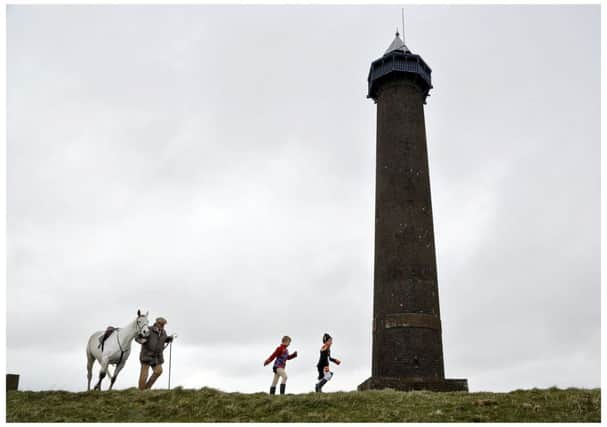Borders Olympian to lead charge at Waterloo event


The four-times silver medallist, who runs an equestrian centre outside Selkirk, will take centre stage portraying the Duke of Wellington in the event to mark the 200th anniversary of history victory over Napoleon and his armies.
More than 300 horses and riders are expected to take part in the event, which will unfold around the Battle of Waterloo monument, which was built in the wake of the conflict at Penielheugh, near Jedburgh.
Advertisement
Hide AdThousands of spectators are expected to flock to Monteviot, on the Lothian Estates, which have been in the same family since the early 14th century, for the event on 28 June, ten days after the actual anniversary.
Along with a series of re-enactments, the crowds will be entertained by displays from military and pipe bands, a “beating of the retreat”, and the lighting of a bonfire before fireworks light up the night sky.
The free event has been instigated by former Tory party chairman Michael Ancram, who is the 13th Marquess of Lothian, whose ancestor was responsible for the 150ft tall monument, one of the most recognisable landmarks in the Borders.
The Penielheugh 200 event – which will be narrated by veteran broadcaster and historian Peter Snow – will celebrate the roles of Scots in the battle, which saw four regiments playing prominent roles.
The Battle of Waterloo on 18 June, 1815, was the last battle to be fought by Napoleon, who had conquered much of continental Europe in the early 19th century.
The battlefield in Belgium, just over a mile from the town of Waterloo, saw the forces of the French Empire defeated by an Anglo-allied army commanded by the Duke of Wellington combined with a Prussian army under the command of Gebhard von Blucher. It signalled the demise of Napoleon’s reign and the end of France’s domination in Europe.
Advertisement
Hide AdMr Ancram, who is hereditary chief of the Clan Kerr, said the significance of the battle to the history of the UK and continental Europe was “immense”.
He added: “Had the victory gone to Napoleon – and it was close – it would certainly have led to total French control of the whole of continental Europe and probably the British Isles as well. Our history would have been very different.
“Hundreds of Scots were involved in the Battle and we believe it is right to remember their outstanding bravery and sacrifice.”